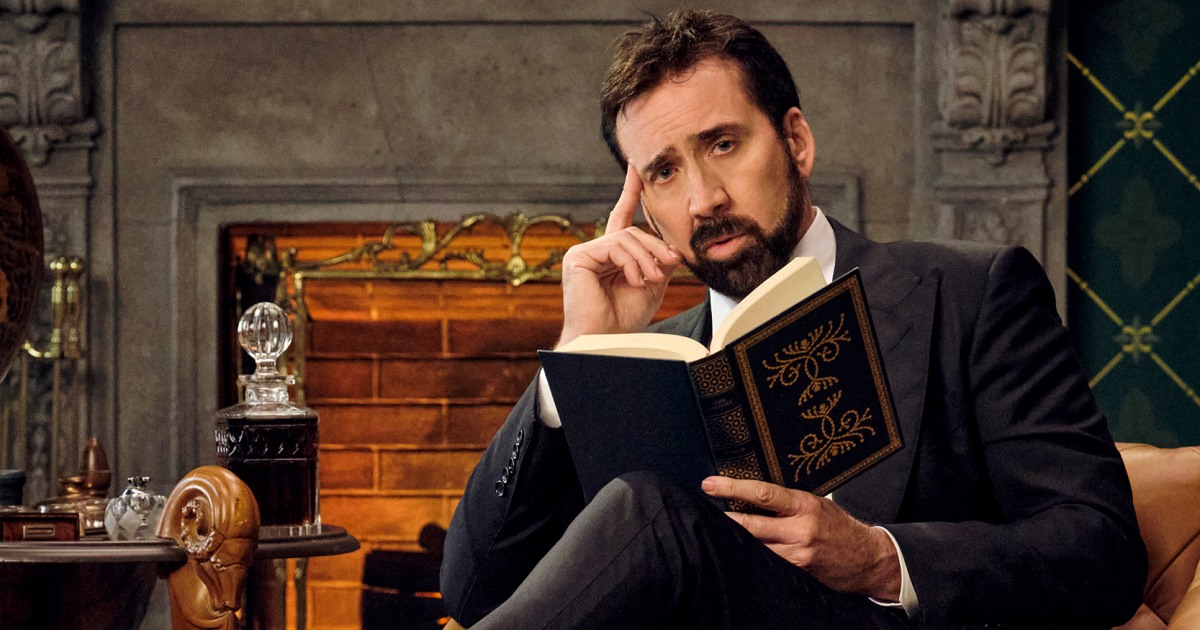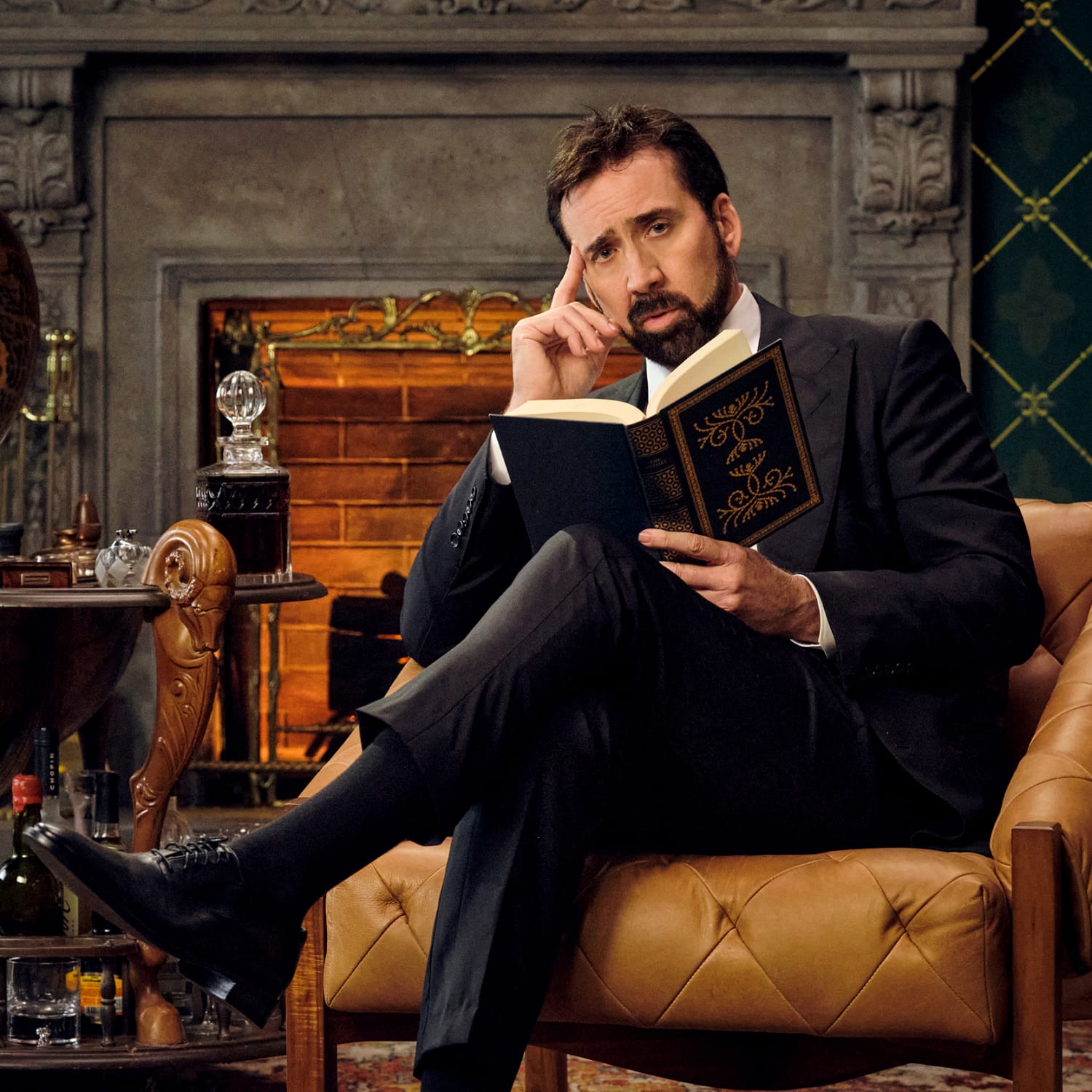
Netflix’s new comedy series “History of Swear Words” is cheerfully profane and profanely cheerful. Experts and celebrities spend each of the six 20-minute episodes saying the “bad” word of the moment with glee and aplomb. It’s a clever, well-designed show — except for the bizarre choice of host. Nicolas Cage completely undermines the show’s straightforward, wholesome edutainment with a cascade of smarminess. He’s painful to watch. But his sneering unpleasantness also highlights something about the power of profanity that the rest of the show, in its clear-eyed good humor, doesn’t quite capture.
Experts and celebrities spend each of the six 20-minute episodes saying the “bad” word of the moment with glee and aplomb.
“History of Swear Words” is certainly interested in nailing down the power of profanity. In one of the series’ most enjoyable and striking segments, cognitive scientist Benjamin Bergen explains that cursing can actually reduce pain, which is probably why people curse when they’re hurt. Scientists are still trying to figure out why curse words have analgesic properties. But whatever the reason, it’s enjoyable to watch comedians like Zainab Johnson and Nikki Glaser plunge their hands into ice water in a scientific effort to prove that they can endure the cold better while shouting profanities.
The series also recognizes that curse words retain their force in some more traditional ways. The show notes in passing that young people tend to see slurs as the most offensive words, and while the series mostly avoids those to concentrate on excrement and sex-based filth, it does include an episode on “b—-.”
Many of the contributors talk about how the word is still denigrating and painful, even as some women have reclaimed it in some situations. Johnson, for example, explains that she thinks it’s fine when her female friends use it, but never a man. Rapper Open Mike Eagle talks about the prevalence of the pejorative in hip-hop and how “people who normally would not allow that type of talk in any other media, they’re OK with it in hip-hop.” He adds that he wonders whether there’s not some “underlying racism” there, which makes people decide that Black artists can’t do better or that it’s OK to speak about Black women, specifically, in this way. “It’s something I’d like to challenge people not to do,” he concludes.
For the most part, though, “History of Swear Words” tends to defang swearing, rather than to reaffirm its power. The mere act of saying any word over and over for 20 minutes is going to banish any lingering taboos.
Tracing each word’s history also has an inevitable desensitizing effect; any monster, no matter how mean-spirited or looming, is less impressive on the dissecting table. Lexicographer Kory Stamper anatomizes each term with all the relish of objectivity, delving into each word’s historical origins and evolution over time. Some words have more obvious beginnings than others, but all are interesting.
Stamper and other experts and comedians curse with obvious goodwill and no hate in their hearts. Nicolas Cage, though, is another story. He is famous for playing unhinged, explosive, scenery-chewing, disreputable weirdos, complete with hyperbolic facial tics and gaping maws. “I lost my hand! I lost my bride!” “You know … I can eat a peach for hours.” In Cage’s mouth, relatively innocuous lines take on an edge of rabid lascivious nuttery. He’s bigger, sweatier and more oleaginous than life.
On “History of Swear Words” though, Cage isn’t playing some iconic screen force; he’s supposedly just playing himself. The result is maybe even odder than his movie roles. He comes off as weirdly smug and detached; unlike everyone else in the series, he is clearly reading lines he didn’t write, and he seems to deeply resent it. When he utters a curse, his face twists and his eyes bug, as if he’s eaten something foul. When he says the two words the show covers that can be used as slurs, he sounds particularly hateful. It’s supposed to be a comedy show, and Cage is reciting jokes, but he isn’t funny. He’s disturbing.
The series clearly would have done better to hire a lead more comfortable with being themselves and/or with portraying humanlike creatures. Just limiting the selection to people in the series, Sarah Silverman, Zainab Johnson, Nick Offerman or Isiah Whitlock Jr. all would have been great improvements.
Still, Cage’s uncomfortable performance does underline an uncomfortable aspect of profanity that the series as a whole largely skips over. Saying taboo words is a fun way to express anger, frustration, joy or enthusiasm. It’s a way to play with language and build neologisms. But people also use those words to make others uncomfortable and because they want words to express aggression, cruelty and loathing. The series for the most part is good, clean, filthy fun. But while he’s onscreen, Cage makes “History of Swear Words” seem ugly and wrong, like a curse.
Source: | This article originally belongs to Nbcnews.com









